Start - Aktualności - They talked about the challenges in didactics
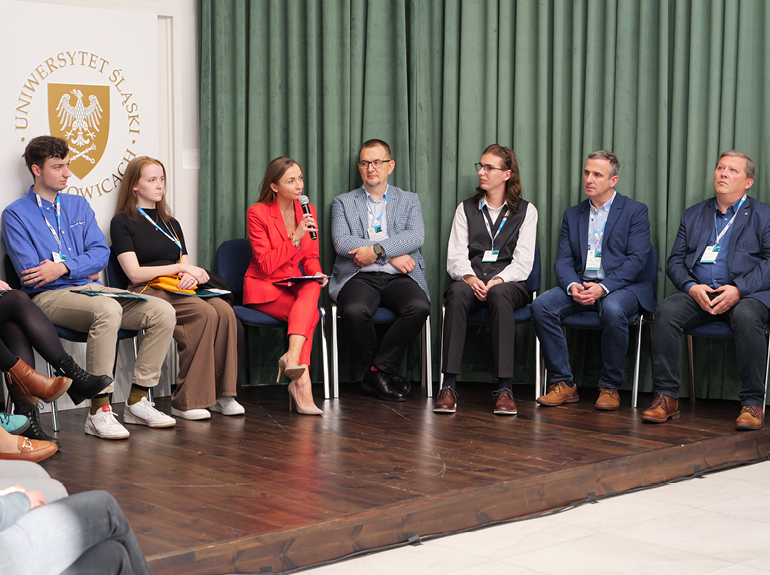
They talked about the challenges in didactics
From the 22nd to 24th of October, the International Congress on Education Quality was held in Katowice. Silesian University of Technology was an active participant of congress events and was in the centre of discussion on the challenges in the field of didactics.
For the fourth time, the International Congress on Education Quality was organized by universities forming the Academic Consortium-Katowice City of Science. During the fourth edition of the Congress, issues related to innovation in didactics and innovation in system solutions in the context of care for the quality of education were discussed.
The Silesian University of Technology was also an active initiator and participant of meetings and debates of teaching staff, academic teachers, scientists, and administrative staff involved in education.
At the Silesian University of Technology, the Congress began in the Senate Hall with a meeting of the Education Council and the Council for Quality Assurance of Education System of the University, and then in the Student Activity Centre, university-wide didactic projects of the Silesian University of Technology were presented.
On the same day in Katowice, the results of projects implemented in cooperation with other Silesian universities forming the Academic Consortium - Katowice City of Science were also presented. Students from various universities and various majors dealt with the real challenges of the present day with the support of scientific supervisors. Project Based Learning is a method of education successfully conducted at the Silesian University of Technology for several years.
– Education based on such projects is not new at our university, but it is new on a national scale, and even outside our country, Silesian University of Technology stands out in this area – emphasized Prof. Dr Hab. Eng. Beata Orlińska, director of the College of Studies at the Silesian University of Technology. – Such a project allows for the personalization of education, we teach students engineering subjects, but we also add such soft skills as creative thinking and communication, which are valued on today’s labour market – added Professor Orlińska.
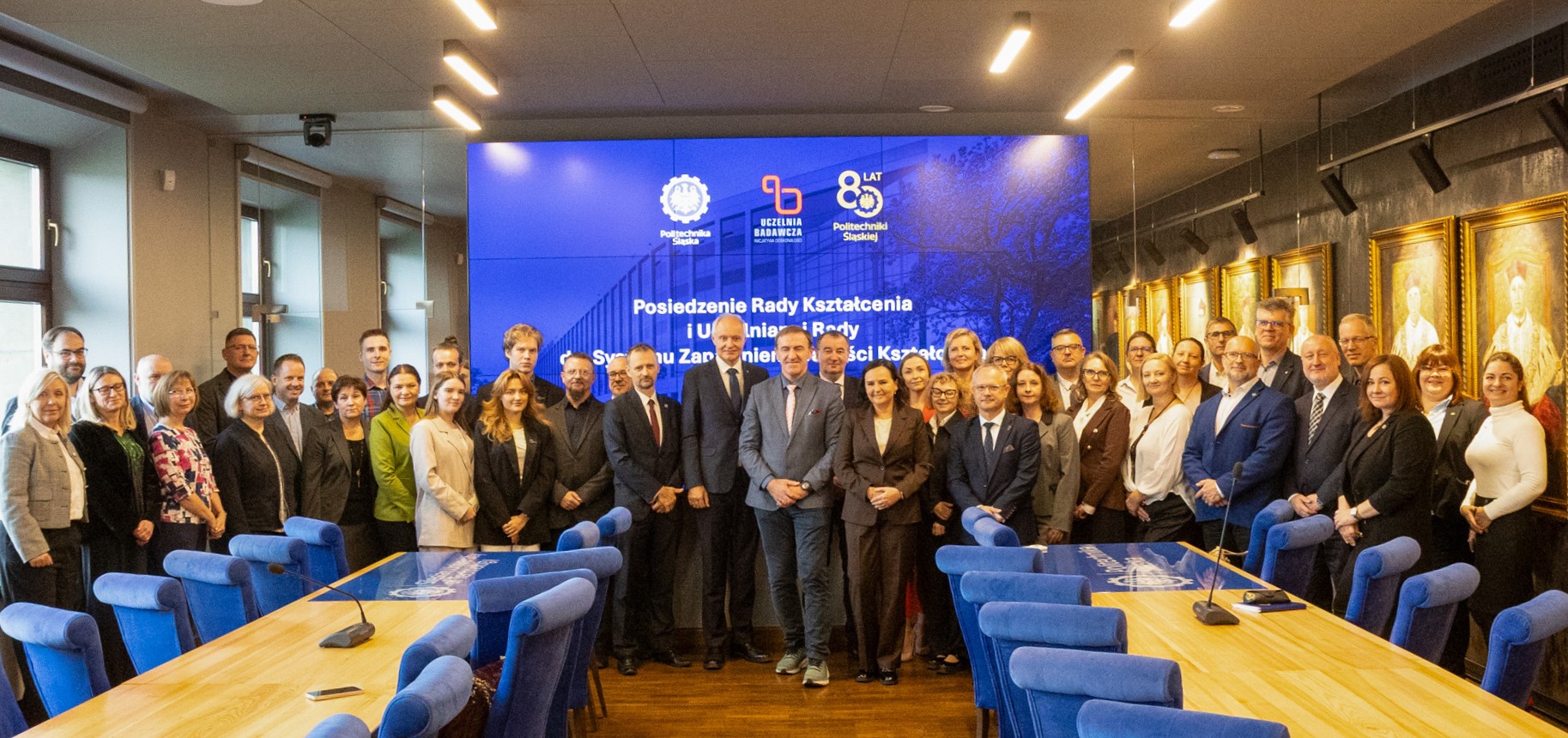
All projects were interdisciplinary and brought together young researchers from different fields of study. One of the results of the joint work of students and academic teachers is a prototype device that can be used in the diagnosis of pneumothorax and cardiac embolism in the postmortem examination.
- We have built a prototype, we have also created a 3D model, we are preparing for tests in the examination room, and we strive to create a device that can be used in everyday medical practice. It would be a solution that will greatly facilitate diagnostics, because currently used methods do not allow quantitative evaluation of gas that is extracted from the pleural cavity or from the heart chambers, - explained Aneta Szumska, a student of the medical faculty of the Medical University of Silesia, who for the first time participated in this type of project together with colleagues from the Silesian University of Technology. - PBL education allows us to move from theory to practice, teaches interuniversity cooperation and group work, allows us to broaden horizons, explore a more specific topic – added the student.
Some scientific projects have shown the importance of communication by connecting people involved in fields that would seem to lie at opposite poles: humanists and chemists.
– It was full synergy, we deepened our knowledge about green chemistry, we learned what catalysis is, when it is needed and why, and on the other hand, our colleagues learned how to talk about it, so that people who do not know chemical formulas understand why it is so important – said Dr Katarzyna Sujkowska, professor of the University of Silesia, Director of the College of Education, adding that interuniversity meetings and the clash of different perspectives on science are extremely developing. – It is a fantastic way to personalize education and make education paths more flexible – added the researcher.
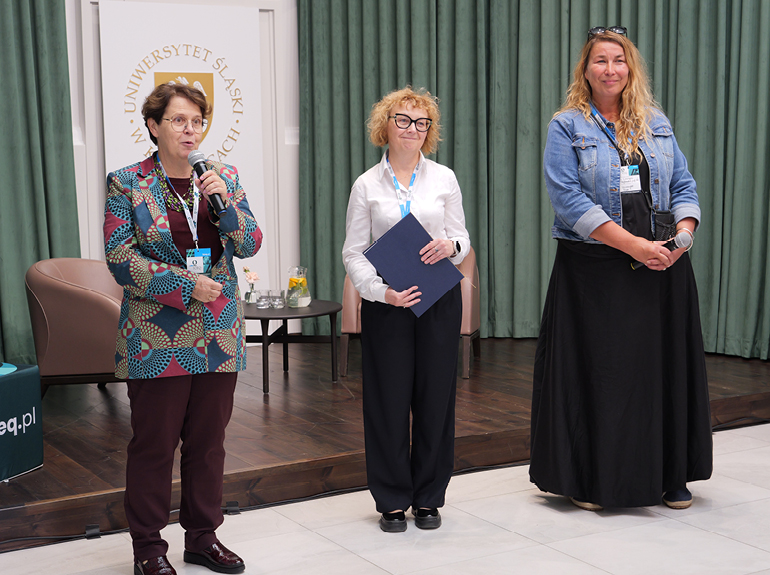
Individualization of education was discussed during the panel during the meeting with project participants.
– We want to implement the PBL method, infect other universities with it, hence the discussion devoted to its wide application in the perspective of scientists, project managers, and students. We talk about their expectations, needs and challenges facing the organizers of project-oriented education – said Dr Anna Waligóra, director of the Centre for Modern Education of the Silesian University of Technology, who moderated the conversation. - This is an innovative way, which is an alternative to traditional lectures, seminars or laboratory exercises carried out at the university, and any innovation that gives students greater opportunities to develop their competences, also in the area of competences of the future, is probably one of the elements of activities preventing drop-outs, as we know as a result of research that we conduct with our students, - added Dr Waligóra.
It is worth noting that the activity of the Director of the Centre for Modern Education of the Silesian University of Technology has been appreciated. On the second day, during the official inauguration of the Congress, Dr Anna Waligóra received a distinction for her work on improving the quality of education, creativity and professionalism related to it. The award was presented by the Vice-Rector for Infrastructure and Investment, Prof. Dr Hab. Eng. Zbigniew Paszenda.
- Every award is motivating. In this case, the more so because the Centre for Modern Education of the Silesian University of Technology is only one year old. Thanks to the commitment of the whole community and the approval of the authorities, we have achieved a lot, but we still have ambitious plans – admitted Anna Waligóra.
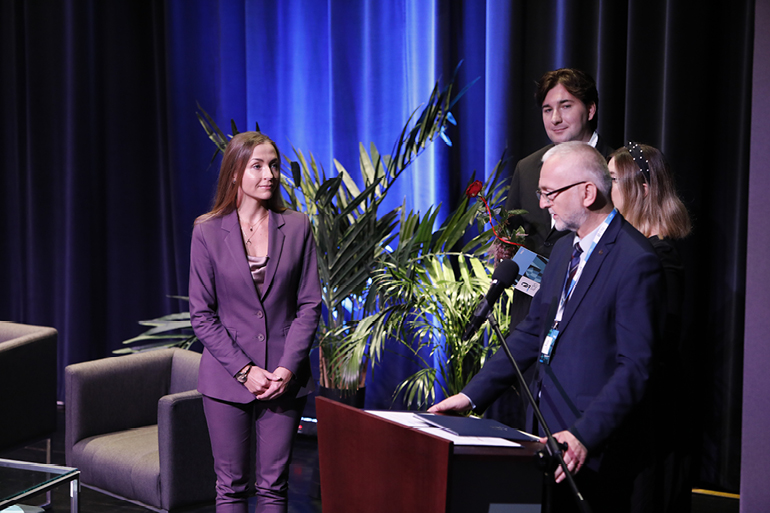
In addition to the new vision of the approach to didactics, on the second day of the Congress, Silesian University of Technology also presented its voice on European universities. The Rector, Prof. Dr Hab. Eng. Marek Pawełczyk participated in the debate on European diplomas that would recognize education in various European countries.
- In the consortium of the European University EURECA-PRO, which the Silesian University of Technology co-creates, we have been discussing the topic of a joint diploma for a very long time and it seems that we have already developed solutions that could be adapted by other member states of the European Union - admitted the Rector. - What's more, at the negotiation stage, these solutions were suggested, and I know that they were used. Methods have been developed with which it would be possible to quickly reach an agreement to introduce a common European diploma – he added. The participants of the debate agreed that before the European diploma starts to function, universities still face many challenges in this area.
The culmination of the second day of the Congress with the participation of representatives of the Silesian University of Technology was the participation of Błażej Brudny, President of the Student Self- Government of the Silesian University of Technology in the debate entitled “Do we feel well educated? The perspective of students and graduates.” Błażej emphasized that
students of the Silesian University of Technology are involved in all decision-making processes, which makes them feel heard and have a real impact on shaping the organization of university life.
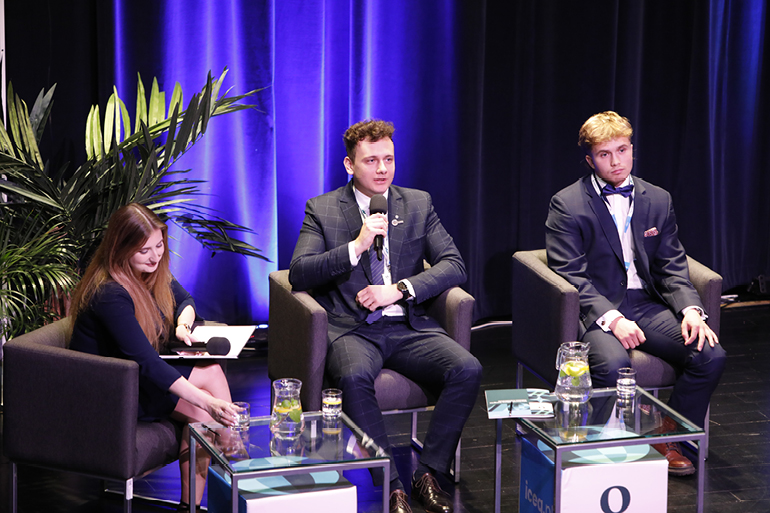
The Congress was not only an opportunity to exchange experiences at the university level, but it was also intended to be a base of inspiration for people and institutions involved in education at earlier stages. The debate initiated by the Silesian University of Technology was another confirmation that the cooperation of teachers from schools with those working in universities can also have an impact on the education of young people.
How many benefits can come from the partnership of the university with secondary schools was discussed on the last day of the Congress. Scientists of the Silesian University of Technology presented their examples, how they implement cooperation with schools from the region and how it affects the quality of education of further students. Teachers, in turn, in addition to the benefits, also highlighted the challenges associated with the implementation of additional classes with university employees. In response to these voices, the Silesian Education Curator Aleksandra Dyla admitted that the current core curriculum should be changed as soon as possible, because it does not follow the current challenges in terms of education and the pace of technological development.
The last, but equally important topic of discussion during the Congress was the official inauguration of the “Universities of the future” program, in which the Silesian University of Technology also got involved.
The project is co-financed by the European Union under the European Funds for Social Development program. The aim of the project is to implement an innovative Model of Personalized Education (MES) within the study programs, which is based on student individual innovative projects and is implemented in the field of education The objective of the MES is to improve the effectiveness of the higher education system in terms of acquiring key competences by students, including entrepreneurial skills and competences of the future so-called 4K: Communication, cooperation, critical thinking and creativity.
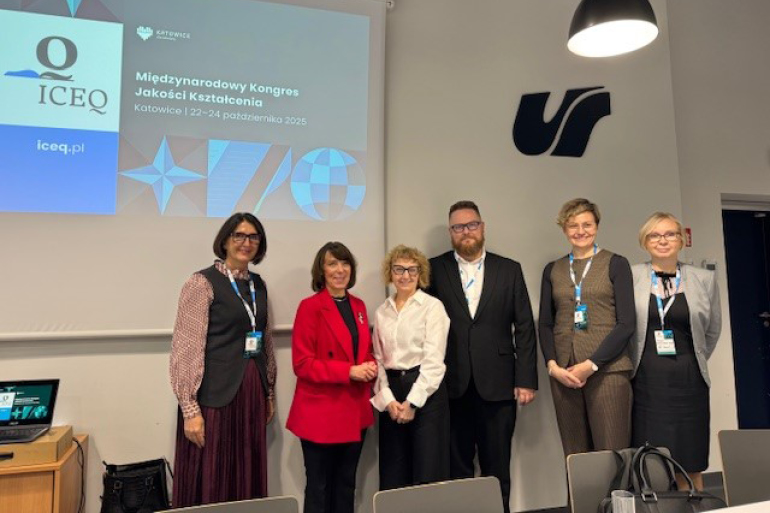
Współpraca: Anna Świderska
Zdjęcia: Martin Huć, Katarzyna Siwczyk, Anna Świderska, Oliwia Orządała Uniwersytet Śląski








